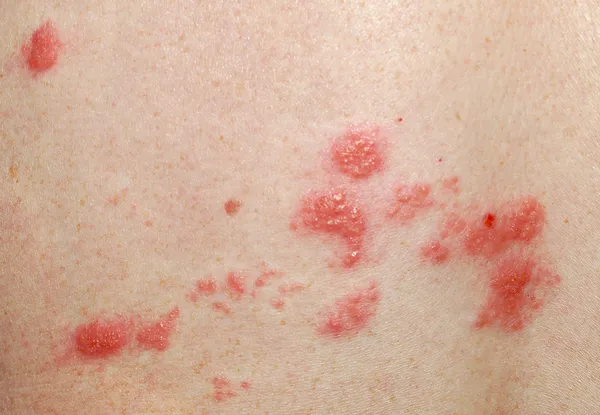Shingles are rashes that occur on any part of the body. They can appear on the legs and on the arms too. These rashes are painful when one itches. They are contagious when one gets into contact with a person suffering and with open wounds. A person will first experience some headaches without any fevers. In addition to this, light is irritating to someone who has this disease. It is not a sexually transmitted disease. However, shingles affect people who are mostly above the age of 50 years. Moreover, people above the age of 60 have more complications as a result of their weak immune systems. In addition, those infected with Hiv/Aids are more likely to suffer.
Causes of Shingles
- A dormant virus present after a person recovers from chickenpox is the main cause of shingles disease.
- In addition, some foods with high amino acids cause shingles such as oats, nuts, and wheat foods.
Signs and Symptoms

- Nausea with dislike in taking any food as it irritates you.
- Fever resulting from headaches.
- Headaches.
- General loss of body energy and one feels sick.
- Pain in the muscles and joints.
- Feeling tired and uneasy even without doing any job.
- Red swollen pimples on some parts of the body such as the chest area, back, and face.
- The rashes have a burning sensation resulting from the itching.
- Some people suffer from losing their hearing senses and taste buds.
- The vision becomes too straining if most rashes are around the eye part of the face.
Risk Factors Associated with Shingles
- The immune system becomes too weak to fight diseases leading to a high risk of body infections.
- Old age kicks in early as the face is sometimes swollen and getting it to where it was before the attack becomes too hectic.
- Also, patients suffering from shingles are often affected emotionally and psychologically.
- Some extent of the attack may lead to cancer and surgery for skin reconstruction purposes.
Treatment of Shingles
- Prescription of Antiviral medicines within 72 hours of diagnosis to minimize pain from itchy rashes.
- In addition, treating the itching allergic reactions using antihistamines.
- Taking a warm bath that soothes the affected skin.
- Healthy diet foods which are rich in Vitamin A, Vitamin B12, Vitamin E, and Vitamin C help in fastening the recovery process.
- Supplements boost the body and help in fighting other infections.
- Ensuring that one gets the chickenpox vaccine which will prevent further body attacks.
- Kenya Medical Training College, courses, requirements.
- List of best private primary schools in Kirinyaga County.
- List of Best private secondary schools in Nairobi County.
- How is The Lenana Boy school and location?
- Public Universities in Kenya
- Best Public High Schools in Kiambu County.
- The best private primary schools in Nyeri county.